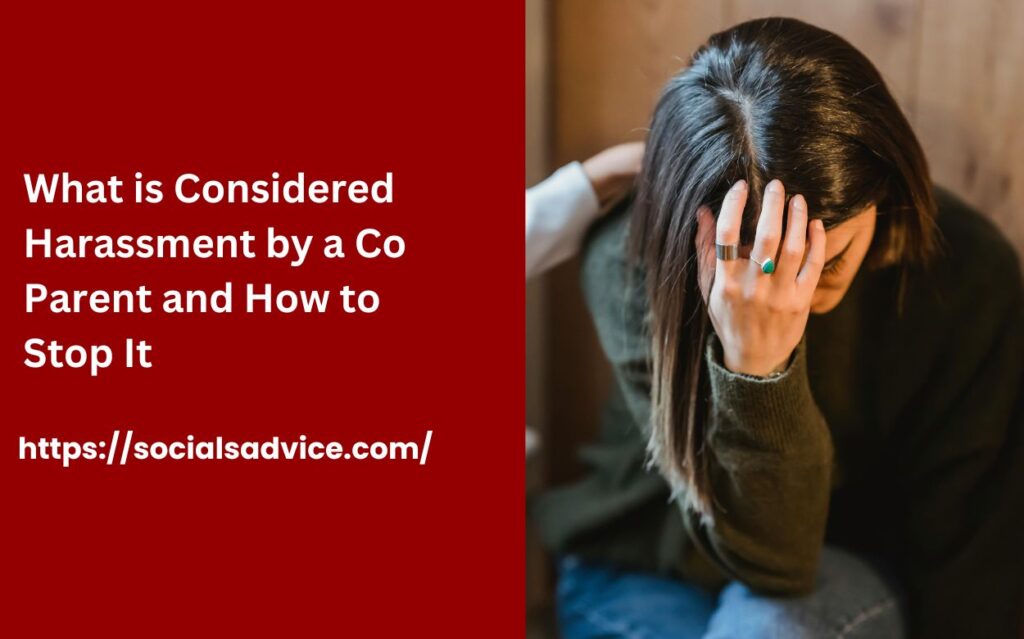
What not to say in child custody mediation includes avoiding from the language which is offensive, irrelevant or contrary to the child’s best interests. Respect for both the mediator and the other parent is the main key to a successful child custody mediation.
The child custody mediation process, which can be an emotional roller coaster. With the child’s future at stake, it is very important to approach this journey with the caution and preparation.
This handy guide will explore all the common mistakes from you have to avoid and the key phrases to use, effective communication strategies, and exactly what not to say during the child custody mediation sessions.
You will also learn about the role of legal representation and when to consult an attorney.
Summary
- you need just focus on the child’s needs and avoid from the personal issues in mediation.
- Don’t use the aggressive language and avoid making unreasonable demands.
- Consult the lawyer to understand rights and responsibilities before participating in arbitration.
What to Discuss in Child Arrangements (Formerly Custody) Mediation?
Just as there are various negative behaviors from which you should have to avoid during the mediation process and at home, there are also the positive steps that you must adopt. Be sure to listen to both the mediator and your partner before acting.
Consider these key principles to adhere to:
- Instead of dwelling on the problems, you have to just focus on being solution-oriented.
- Be willing to co-parent and create a supportive environment, which is very beneficial.
- Ask for the clarification rather than a speculation.
- Be open to compromise on all the things and find a common ground.
- Always keep the best interest of your child’s at heart.
By having the clear idea of the process, you can feel more empowered during mediation. Clear communication between the parents and mediators will also help to foster a transparent and collaborative environment in which the needs of the children come first.
Child arrangement/custody mediation is often a stressful and sensitive process because the stakes are incredibly high. If you want to improve your chances of the favorable outcome, is very important to act with composure and professionalism at all times.
You should keep in mind what you say and behave during mediation can significantly affect on the results, so it is important to approach the process with your child’s well-being in mind.
Steer clear of these typical errors during child custody mediation
Navigating the delicate landscape of child custody mediation can be a challenge and difficult for even the most accomplished individuals. It is very easy to make mistakes that can lead you to the undesirable results, such as the prolonging the process or reaching to the poor child custody agreement.
You should be aware of these common pitfalls, which can help you avoid them and make sure that the child’s best interests should remain at the center of the mediation process.
Foremost, let us check some common mistakes to avoid in a child custody mediation, such as focusing on the personal issues, by using the aggressive language or behavior, and making unreasonable demands.
When you understand these mistakes and their impact, then you can better prepare yourself for the mediation session and increase your chances of reaching the fair custody arrangement.
Focusing on Personal Issues
Directing attention towards personal matters
During the child custody mediation, it is very important to keep the conversation focused on the best interests of the child. If you focus on your personal issues, it can create emotional intensity, hinder the mediation process and hinder productive discussions about the child’s welfare, including the physical custody. Child custody mediation sessions should always put the child’s needs first.
To maintain an inclusive and respectful attitude and avoid personal insults When you participate in mediation, focus fully on the issues at hand by staying focused and refraining from personal attacks to ensure that you can help keep mediation sessions child-centered and productive throughout the year.
Avoiding the use of aggressive language or behavior
A child’s language or behavior in a child custody mediation process can have many effects that can have a negative impact on the child, such as high conflict between the two, negative impact on the child, poor communication and negative impact on the mediator. This can lead to child custody disputes and a lengthy process.
Examples of offensive language or behavior include yelling, name-calling, insulting, threats, and other forms of verbal or physical aggression. Use confrontational language and avoid personal the comments.
If the other party uses condescending language or behavior, be composed and respond in a respectful and non-confrontational manner, and avoid confrontation altogether.
Avoid making unreasonable requests or demands.
The process in which Making unreasonable demands in the child custody mediation can further complicate the process, which makes it difficult to reach an equitable agreement.. Examples of unreasonable demands include requesting excessive child custody, requesting disproportionate child support, or requesting visitation rights that are not in the child’s best interest.
To avoid making unreasonable demands, know the law, the best interests of the child, and be willing to compromise. Additionally, being aware of the other party’s interests and being open to negotiation is highly recommended.
Try refraining from always saying “my” when talking about the children.
When making a child custody agreement with your spouse, don’t always say “my” kids. If you do, it fails to recognize your spouse as the other parent, and will undoubtedly hinder your mediation sessions. Since you’ll both still be very involved in your children’s lives, it’s always best to refer to “our” children instead. If you do this, you are much more likely to get the results you want.
Avoid using the mediation session for making accusations
Even if you disagree with your spouse about a variety of issues related to finances or other matters, your child custody mediation session is not the time to make accusations about specific topics. If you give permission your emotions get the best of you, not only will the mediation session get off-topic in a hurry, but the mediator may end the rest of the session.
Avoid agreeing to everything without careful consideration
In some child custody mediation sessions, one parent who may be afraid of not reaching a favorable agreement may have a tendency to say “yes” to everything the other spouse does. If you make this mistake unintentionally, you will almost certainly end up with a custody agreement that is much less than you would like.
While if you want to pursue a good working relationship with your soon ex-spouse, you also want to make sure that the final custody agreement works to your advantage as well.
Refrain from stating that you don’t require your lawyer’s presence
Even though you’re not in the courtroom, that doesn’t mean you can enter the mediation session without your attorney. So, never tell your spouse that you don’t need a lawyer to help you with this matter. If you do this, your spouse will know from the start that they have a decisive advantage against you, and will undoubtedly use this to get the most out of the final settlement.
Avoid making unreasonable requests
If you go into your child custody mediation session making unreasonable demands, like wanting the kids to spend all the holidays with you, you likely won’t get very far with your spouse or the mediator. So, don’t think that you can use your sessions to make one demand after another in an attempt to pressure or intimidate your spouse.
Instead, keep your cool, come to the sessions prepared, and work with your attorney, your spouse, and the mediator to reach an agreement that benefits both you and your children. If you use common sense and choose your words carefully, it will help you reach a child custody agreement that works well for everyone involved, especially your children.
The Function of Mediation in Child Custody Disputes
Initiating a child petition mediation can involve emotional upheaval and legal complications. Still, it offers children the hope of a place where wellness leads you.
- The role of mediators is very important in shaping and prioritizing.
- the child well-being by encouraging cooperative social interactions between a parent.
At the children’s request, mediation cannot be just one meeting. It is very important process that aims to resolve differences of opinion through consensus. Think of mediation as a bridge between both parents’ personal conflicts to focus on the issue at hand.
Mediation sessions, facilitated by the trained mediator—a neutral third party—provide a safe place for parents to express concerns, wishes, and plans for their child’s future without fear of judgment or escalating conflict, which provides the auxiliary configuration.
The heart of the successful child custody mediation which lies in:
- Using active listening techniques
- Effective communication between all the parties which are involved
- Willingness to compromise
It is about working with the parents, with the help of their child custody attorney or family law lawyer, to develop a parenting plan that reflects their child’s best interests. This process enables both the parties to explore different custody arrangements, from joint to sole custody, and decide on visitation rights in a less adversarial environment than the courtroom.
Conclusion
You must keep in mind, the goal of working together through child custody mediation is to ensure your child’s happiness and well-being. Collaborating with fellow parents can be very helpful, and legal professionals can pave the way for a brighter future for your entire family.
FAQs
What is the best custody situation for the child?
Most experts recommend using the 2-2-3 sign with parents of young children. This reduces the time a child spends apart from the parents. For him, this consistency allowed youth to form meaningful relationships with their parents in addition to providing the stability they needed.
What is poor co-parenting?
“Bad” co-parenting often occurs when there are feelings of resentment, anger, and betrayal, as well as competition between the parties (i.e., wanting to spend more time with the child, making your home a “fun house”). Take priority over the welfare of the child or children.
How can the father win custody in Illinois?
To get sole custody, you must show with a clear evidence that joint custody would not serve best interests of the child. This approach is consistent with Illinois custody law, which prioritizes the welfare of the child in every kind of custody decisions. You should carefully consider what your child custody goals are.
What is careless parenting?
Parents who do not pay attention to mediation are called neglectful parents. This includes irresponsible parents who fail to take care of their children’s physical, mental and emotional needs. They often offer little or no discipline (remember that discipline means to teach, not punish), and little or no warmth.


